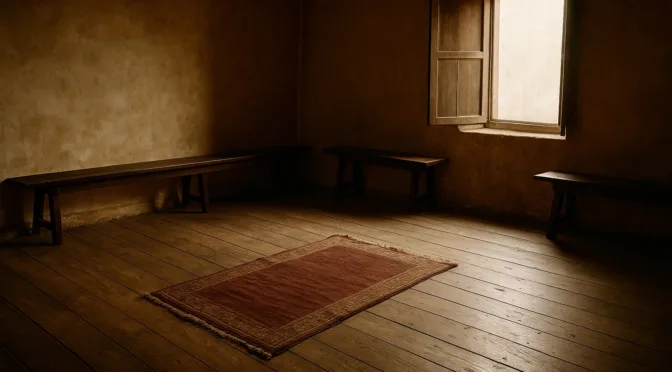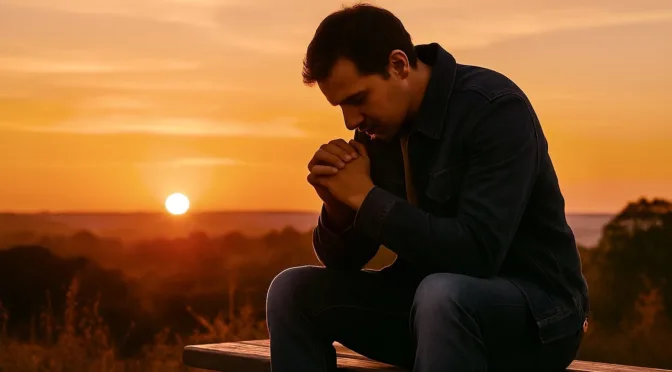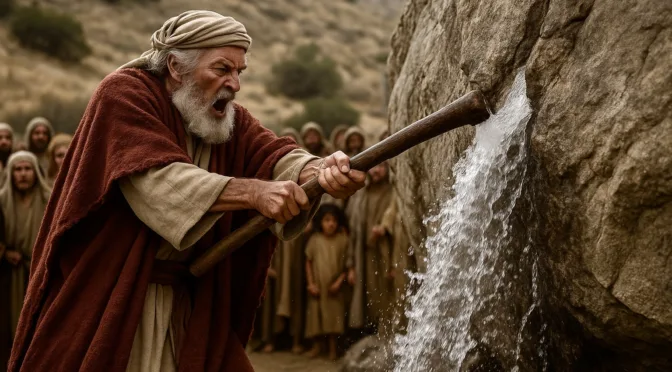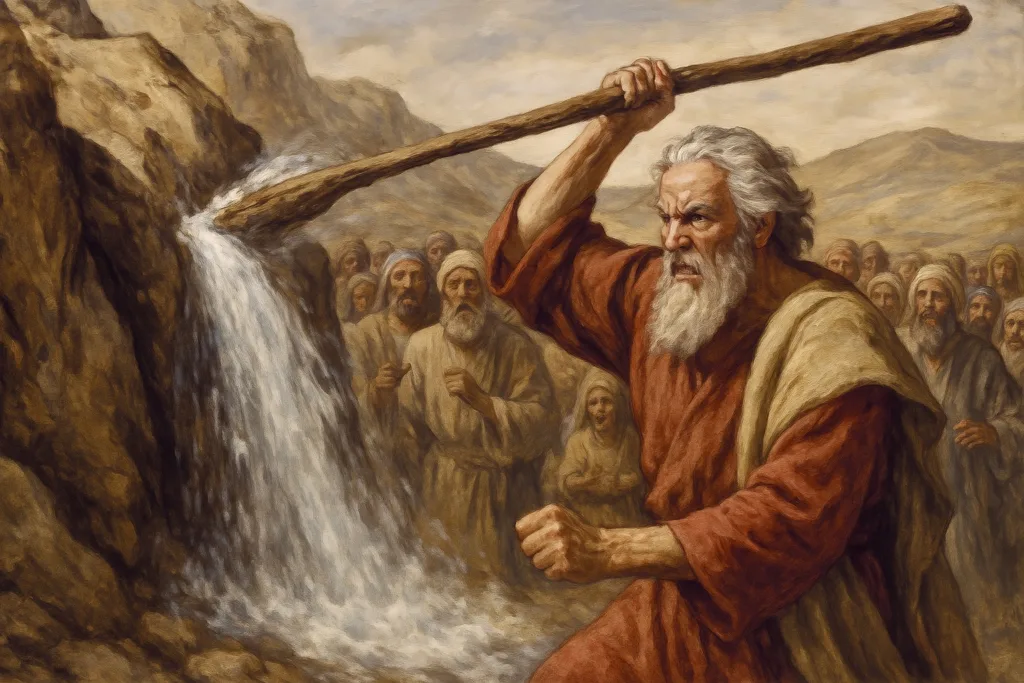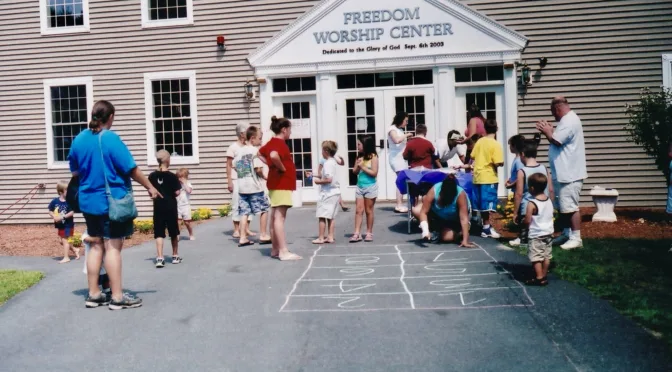When the day of Pentecost had fully come, the disciples were not busy making plans or debating strategies. They were hidden away, hearts low to the ground, souls turned upward. “When the day of Pentecost had come, they were all together in one place” (Acts 2:1, NASB). They were not idle. They engaged in tear-soaked prayer—quiet, desperate, persistent prayer in the Upper Room (Acts 1:14, NASB). Pentecost teaches us that absolute reliance on God begins not with action but with prayer.
Prayer was not an afterthought; it was the furnace where their dependence was forged. In the Upper Room, they wept, waited, and wore the floor thin with their knees. They had no other plan. They had no fallback. The strength to fulfill the Great Commission could not be conjured by willpower—it had to be born in prayer. If we are to learn anything from Pentecost today, it is this: we must return to the Upper Room posture. Absolute reliance on God means sinking to our knees and refusing to rise until He answers.
In our generation, prayer is often the last resort. We strategize first, act second, and pray third. Pentecost rebukes this order. The fire of God falls on soaked altars, on lives marinated in the secret place. Prayer must again become our lifeblood, not a hurried sentence but the slow, aching cry of a heart desperate for Him. The world tells us to be busy; Pentecost calls us to be still before El Shaddai, the All-Sufficient One, and wait for His power.
Pentecost also reminds us that prayer is corporate as well as personal. “These all with one mind were continually devoting themselves to prayer…” (Acts 1:14, NASB). They were of one accord—not arguing about doctrinal differences, not boasting, “I follow Paul,” or “I follow Apollos.” Their hearts were knit together in humility and dependence. Division would have quenched the Spirit before He even came. In that upper room, the Spirit of God found a vessel unified and emptied.
And what was the cry of their hearts? These disciples, hunted and threatened, did not ask for protection. They did not pray, “Lord, send angels to defend us,” or “Deliver us from our enemies.” They prayed for boldness—the holy courage to preach the gospel without fear (Acts 4:29, NASB). Absolute reliance on God means trusting not in physical safety but in the triumph of His Word. They understood what it meant to be crucified with Christ. Their lives were already laid down; they sought only the strength to proclaim the Name of Yeshua boldly, even unto death.
The Church today must recover this fearless heart. If we long for revival, we must pray not for ease but for fire—not for comfort but for courage. Absolute reliance on God means trusting Him to sustain, strengthen, and embolden us when the world rages against us. God has not given us a spirit of fear, but of power and love and sound judgment (2 Timothy 1:7, NASB).
Beloved, the lesson of Pentecost is clear: if we are to walk in the power of the Spirit, we must first kneel in utter dependence. Absolute reliance on God is not passive—it is an active, unyielding trust formed in the furnace of prayer. Like the disciples, we must forsake all other hopes, all other strengths, and look only to Him who promised, “You will receive power when the Holy Spirit has come upon you” (Acts 1:8, NASB).
Our world is desperate for revival, but revival will not come through clever sermons or polished programs. Revival will be born when men and women of God are found once again in Upper Rooms, floors damp with tears, hearts lifted like incense. Pentecost calls us to be that generation.
Self-Reflection: Walking in Absolute Reliance on God
For the Believer:
- Am I seeking the fire of God through tear-soaked prayer or am I relying on my own strength?
- When fear rises, do I pray for protection, or do I ask God for boldness to proclaim His Name?
- Have I set aside personal ambitions to become fully dependent on El Shaddai, the All-Sufficient One?
- Is my heart unified with my brothers and sisters, or is division hindering the move of the Spirit in my life?
For the Local Congregation:
- Are we a church of prayer or a church of programs?
- Have we created an Upper Room culture where dependence on the Spirit is our first response?
- Do we spend more time strategizing or more time seeking the face of God together?
- Is boldness to preach the Gospel part of our prayers, or have we settled for safety and comfort?
For the Denomination:
- Are we leaning on heritage and tradition, or are we actively dependent on the living Spirit of God?
- Are we unified in mission and spirit, or divided by secondary matters that grieve the Holy Spirit?
- Have we lost our boldness, forgetting the fearless prayers of the early Church?
- How will our generation be remembered — as those who sought revival through prayer and unity, or as those who trusted in human plans?
⸻
Prayer
O Sovereign Lord, we come to You stripped of all pretense and power. Teach us again to wait before You in prayer, to soak the ground with tears, to hunger for nothing but Your presence. Forgive us for trusting in our strength and teach us absolute reliance on You. Birth in us the Upper Room cry, the unrelenting groan for Your Spirit. And when You come, Lord, grant us boldness—not comfort, not safety—but boldness to declare Your Word without fear. May our lives be the altar, and may Your fire fall again. In the mighty name of Yeshua, we pray. Amen.
⸻

